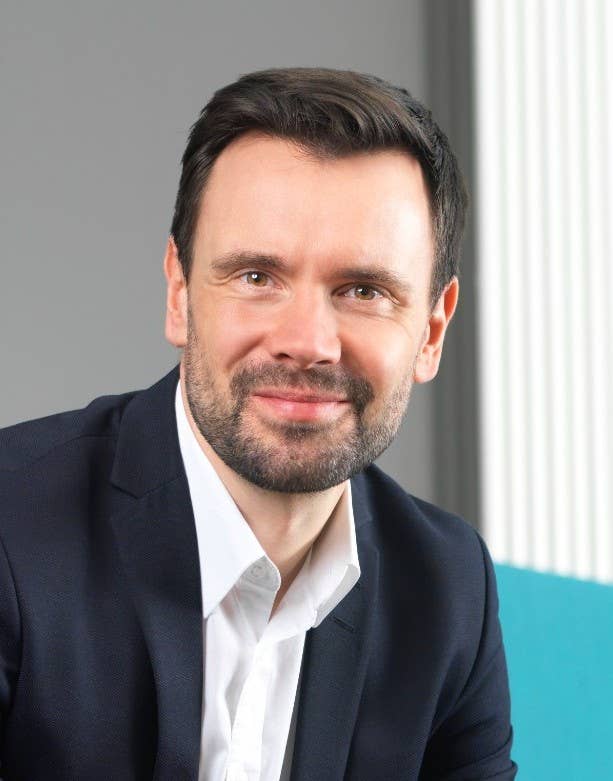2020: A year of success and responsibility
Game managing director Felix Falk reflects on a pivotal year for the games industry in Germany and beyond
This has been an extraordinary year for everyone, and that includes us in the video games industry. In Germany and around the world, 2020 has presented us with opportunities and confronted us with challenges from which we will need to draw the right lessons for the coming years. From games funding, COVID-19 solutions and Gamescom, to diversity, youth protection and digital education.
It is no surprising insight that the year unfolded entirely under the influence of the COVID-19 pandemic. From an economic perspective, numerous companies and entire industries feared -- and still fear -- for their survival, but The games industry had comparatively good news to report. Yes, the pandemic has impacted our industry, too: new releases were postponed, investors were harder to find at purely digital events, and coordinating game development from a home office setting carried risks.
Unlike other industries, however, we have at the same time been able to communicate optimal results in many areas. Video games markets around the world saw strong growth, not least during periods of lockdown. During the first half of 2020, in Germany alone, the video games market posted a substantial 27% increase over the same period last year. As a result, particularly in the early summer, the press seemed especially focused on one question: will the games industry emerge as the pandemic's big winner?
Video games markets around the world saw strong growth, not least during periods of lockdown
The COVID-19 pandemic has in fact spurred stronger growth in video games market revenues compared to preceding years, and that is no reason to feel bad. It simply demonstrates the well-established place of video games in our society and how helpful they have been for millions of people. It also shows how far our industry is ahead of other economic sectors. Still, this development is no reason to parade triumphantly through the streets, either. Rather, we must ask ourselves what responsibility comes with this success.
Particularly during these times, we must be aware of our function as a role model. Now more than ever, the games industry must show its strengths, especially when it comes to our influence on other industries and spheres. The best example here is the field of education: in times in which many schools have either been closed or have operated under severe limitations, we must show that games and game technologies can be part of the solution.
That is one example of the responsibility that the games industry bears and must exercise -- and not only at this time. We have a societal responsibility, which we took on long before the pandemic. There are many examples in which this is evident, ranging from diversity initiatives that endorse openness and inclusivity -- such as #TeamDiversity here in Germany, and the Directory of Games with educational purpose, which were in great demand during school closures -- through to the introduction of video games into school curricula in Poland. These and other examples show the positive influence the games industry can have on society in the area of digital education alone.

In this context, the issue of youth protection remains especially important to us. We see this in various developments in Germany, including in proposed legislation which is intended to protect youth but appears likely to miss its target. Rather than facilitating modern and internationally compatible youth protection, the draft law breathes the bureaucratic dust of the analogue era. This neither helps children and parents, nor does it create legal certainty and clarity for companies.
For the video games industry, our goal must therefore be to point out more emphatically the many good youth protection systems that we have already developed, such as exemplary initiatives like the International Age Rating Coalition (IARC). These also include new web portals for responsible approaches to video games, such as "Play Smart" from the Swiss Interactive Entertainment Association or the "Get, Set, Go" campaign from UKIE. After all, if the games industry can demonstrate that our youth protection solutions are among the best and most modern, we can set positive examples here that show bad regulations up for what they are.
In this year of the COVID-19 pandemic, we must also take special responsibility for our community. As the organiser of Gamescom, we wanted to prevent the outright cancellation of the world's biggest event for games despite all of the current adversity. Instead, we decided to put together a purely digital event, which became a firm pillar for many video games in this tumultuous year. This joint undertaking paid off, for example with Gamescom: Opening Night Live attracting two million simultaneous viewers.
I believe we will look back on 2020 and recognise that this year created many new possibilities for the video games industry
Our efforts this year to improve the conditions for esports also met with success in the form of simplified visa processes for professional esports players. This paid off in particular during the months of travel restrictions due to COVID-19, and there is more to be done. Above all, we will continue our work to establish non-profit status for esports associations, which play a very important role in their local communities. With the Esports Player Foundation, Game - the German Games Industry Association assumed a special degree of responsibility this year: the foundation will provide targeted sponsorship of esports talents in the future, supporting them along the path to their professional careers.
It thus takes on a significant role, as esports stars have come to represent important values in our society: team spirit, fair play, and the will to keep improving and bringing out their best; all of these characteristics make the players important role models for the young generation. Through the esports player foundation, we want to take responsibility for this as well.
The major role ascribed to the games industry is also evident in the support we receive from the political sphere. Shortly before the end of the year, the first approvals for nationwide games funding were announced. This is important for German companies, as it finally affords them competitive conditions -- including in the area of financing -- for the production of video games. The entire games ecosystem in Germany will ultimately benefit from this, meaning that responsibility for each other will remain important in our industry.
The €50 million that the government provides each year to promote development is also a sign of trust. The video games industry is important for Germany as a digital and economic location, so public funding for the industry is likewise important. We must deal responsibly with the trust that has been shown us, and we seek to contribute to strengthening Germany as a location for video game development in the coming years. It is our intention that this results in new video games, new companies and new jobs, and that our expertise and successes stimulates activity in as many other fields as possible.
In just a few years, I believe we will look back on 2020 and recognise that this year created many new possibilities for the video games industry. A greater openness and curiosity is currently emerging with respect to our medium -- an opportunity that we should take advantage of together. Now is the time to show that video games aren't just a fantastic entertainment medium, but an asset to so many other fields.
From the German perspective, 2021 is already shaping up as an especially exciting year. A new dynamic has taken been set in motion like rarely before, and we will harness this momentum responsibly.
Felix Falk is managing director of Game - the German Games Industry Association








